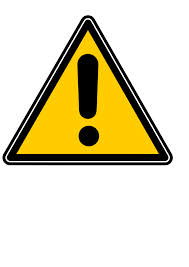An Overview of Determiners
A determiner is a word that allows us to "zero in" on the particular nouns we are referring to. For example, is it specific? (le livre), unspecific? (un livre), possessive? (mon livre) in front of you? (ce livre)?, is there more than one? (deux livres). The main types we consider in this guide are articles (le, la, les, un, une, des), possessives (mon, ma, ton, ta, son, sa, notre, votre, leur) and demonstratives (ce, cette, ces). All determiners vary according to the gender of the noun they precede.
Articles
Articles allow us to indicate how definite (or specific) something is. French uses the following ones:
- masculine indefinite: un, e.g.: un homme
- feminine indefinite: une, e.g.: une femme
- plural definite: les, e.g.: les femmes
- plural indefinite: des, e.g.: des femmes
- des is usually translated as "some" or nothing (e.g.: j'ai des problèmes).
- Don't use un/une before professions, e.g.: Il est professeur, je suis étudiant, ma mère est infirmière (yep, "student" is a profession!). The only case where you use un/une before a profession is when you describe the profession, e.g.: Je suis une étudiante sérieuse.
- le and la become l' before vowels, e.g.: l'ami (see section below on elision).
- de + le becomes du, e.g: C'est la maison du patron.
- à + le becomes au, e.g.: On se retrouve au parc.
Possessive Determiners
As their name suggests, possessive determiners are placed before nouns to show who they belong to. These are illustrated in the following table:
| English |
masc. sing. |
fem. sing. |
plural |
| my |
mon, e.g.: mon livre |
ma, e.g.: ma bicyclette |
mes, e.g.: mes amis |
| your |
ton, e.g.: ton livre |
ta, e.g.: ta bicyclette |
tes, e.g.: tes amis |
| his/her |
son, e.g.: son livre |
sa, e.g.: sa bicyclette |
ses, e.g.: ses amis |
| our |
notre, e.g.: notre livre |
notre, e.g.: notre bicyclette |
nos, e.g.: nos amis |
| your |
votre, e.g.: votre livre |
votre, e.g.: votre bicyclette |
vos, e.g.: vos amis |
| their |
leur, e.g.: leur livre |
leur, e.g.: leur bicyclette |
leurs, e.g.: leurs amis |

* Don't confuse notre with nôtre. The word notre is a determiner that appears before nouns and means "our"; the word nôtre is a possessive pronoun that follows a determiner and means "ours" (e.g.: C'est le nôtre, ce n'est pas le vôtre = "That's ours, not yours"). The same is true of votre and vôtre.
* Don't confuse ses with ces or c'est. The word ses is a possessive determiner ("his/her"). The word ces is a demonstrative determiner; the form c'est means "it is".
* use mon, ton and son before feminine words that begin with a vowel, e.g.: mon imagination, son idée.
Demonstrative Determiners
Demonstrative determiners are used to refer to nouns that are present when talking, or for making a contrast between two different nouns. French uses the following ones:
- masculine: ce, e.g.: ce livre
- masculine before vowel: cet, e.g.: cet effort
- feminine: cette, e.g.: cette idée
- plural (masc. or fem.): ces, e.g.: ces idées
Demonstrative determiners correspond to the English words this and these.

* don't confuse ces with ses ("his/hers") or c'est ("it is")
* write cette before feminine nouns, not cet (even though they sound the same). Remember, cet is only used before masculine nouns that begin with a vowel sound, e.g.: cet été (but cette information).
* Don't confuse ce/se. The word ce is used before masculine nouns, e.g.: ce livre, whereas the word se is used before verbs, e.g.: Il se promène.
Elision
The sequence "vowel + vowel" is rare in French. As such, determiners that end in a vowel change their form if the noun that follows begins with a vowel, e.g.:
- le > l', e.g.: l'automne
- la > l'a, e.g.: l'importance
- ma > mon, e.g.: mon importance
- ta > ton, e.g: ton importance
- sa > son, e.g.: son importance
- ce > cet, e.g.: cet automne
The same phenomenon happens with words that begin with what is referred to as "h muet" (silent "h"), e.g.:
- l'homme, l'hiver, l'horizon, l'hôtel, l'habitude
Still, within the category of silent "h" words, you need to distinguish between those words that result in elision ("h" muet words) and the rest ("h" aspiré words), where the "h" is still silent, but elision and liaison is blocked, for historical reasons. Here are the most common words of this type:
- le hibou, le homard, le héros, la honte, la hache, le hasard, le haut, le hockey, le hameau, la haine, la hanche, le handicap, le hachoir, le hérisson, le hoquet, la hiérarchie, la Hollande, le hamburger, le hamster, le héron, le hamac, le hongrois, le hangar, le harcèlement, le houblon
Note that words referred to as "h" aspiré words don't actually involving any aspiration! (they just block elision and liaison; nothing is pronounced).